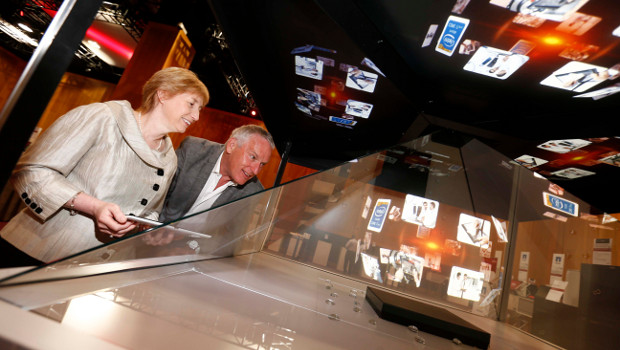At its World Tour event in Dublin, Fujitsu set out a powerful vision for the future of information and communications technology (ICT) that will move the world of work from an efficiency to a human-centric paradigm.
“We believe in the power of ICT to change society for the sustainability of our planet,” said Regina Moran, MD, Fujitsu Ireland.
“We aim to be a responsible employer and responsible business that contributes back to society,” said Michael Keegan, head of Fujitsu UK and Ireland.
Keegan said that there is a new industrial revolution that is being led by people and empowered by ICT.
“Today the tools of innovation are more accessible than ever before. Mobile technology has put information at our fingertips,” he argued.
Focusing not only on productivity, Keegan said that aligning business with positive social outcomes is important, and key goal for Fujitsu globally.
“Our technology and services vision will show us how to get there, from here,” he added.
Keegan said that key to success in the hyper-connected world, for Fujitsu, is its people.
Today the tools of innovation are more accessible than ever before. Mobile technology has put information at our fingertips
“Through ICT, people are going to be empowered to innovate and create the new business and social value. And that is the basis of what Fujitsu calls its human centric intelligent society. That’s our vision for the sustainable future.”
David Delaney, head of innovation, Fujitsu Ireland, said that the company had developed a new approach to innovation that was had three “dimensions”: people, information and infrastructure.
Delaney gave an example of this approach through Fujitsu’s work with Northern Ireland Libraries (NIL). He said that the organisation, in common with many other public libraries, was struggling to remain relevant in the web-enabled, hyper-connected world. Working with Fujitsu, Northern Ireland Libraries implemented a new managed infrastructure, including desktop and mobile devices. To leverage the rich existing inventory, a new library information management system was crated as the basis of a range of flexible services across 27 libraries. This allowed NIL to provide a book reservation system online where borrowers to return a book to any of the libraries. When a physical copy of a book was returned, the borrower could obtain an ebook version to take away. Secure wireless networks were installed to allow users to use library services on their own devices, such as smart phones and tablets.
The event featured sessions from various industry leaders. Prof Barry Smyth, CEO, Insight, in a talk called “From Small Sensors to Big Data: The data driven business”, argued that there is an explosion in sensor technology that is contributing huge amounts of data that will be the basis of evermore creative apps and usages. He highlighted a new app that can give a reasonable measure of lung capacity by the user breathing on the microphone of a smart phone. Another sensor driven technology is where an asthma inhaler can report usage which can then be built up across all users to show a map of air quality in a given area. Yet another technology gives a rough calorie count of food from image analysis.
He said that despite the ability of algorithms to clean up, or identify the strong signals in, mass data, it is still currently down to the experts, such as clinicians, to actually interpret data.
In a talk entitled “Innovating with Information – making information valuable to a business,” Nick Wood, head of Information Management Technology Practice, UK and Ireland, Symantec, outlined a number of new terms in relation to data. Data Gravity is a scenario whereby processing power for data analysis is kept as close to the data as possible. The reasoning behind this is that sometimes a data source can be overwhelmed by API calls, often resulting in tranches of the data being taken off source for more specific analysis. This can lead to fragmentation, duplication and versioning issues. By keeping the processing power close to the data, Wood said that data integrity is preserved.
“IT departments without a map, are moving from a data-centric to an info-centric world,” said Wood.
TechCentral Reporters








Subscribers 0
Fans 0
Followers 0
Followers